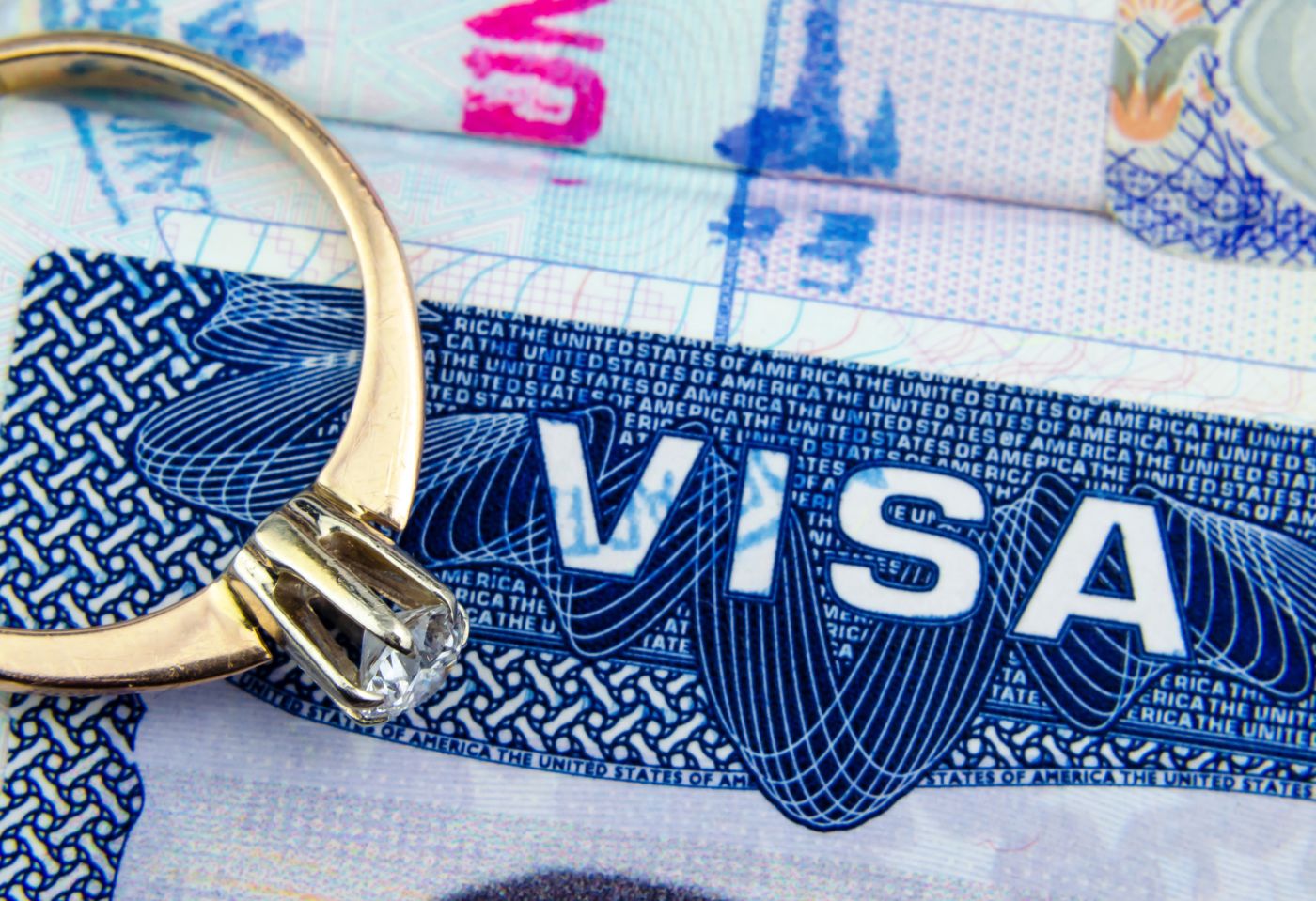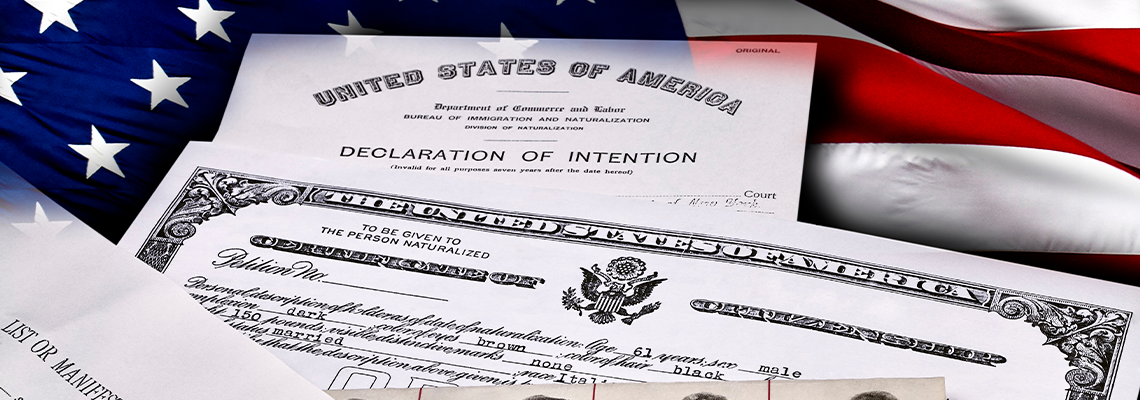
Applying for a K-1 fiancé(e) visa can feel overwhelming. Many couples are filled with hope and excitement for their future together, but they often find themselves caught in frustrating delays. These hold-ups can stretch the visa process by months or longer. If you’ve already been waiting for approval, the last thing you want is to lose even more time over avoidable mistakes.
At Herhusky Law Office, PLLC, we’ve worked with countless couples who face these struggles. We understand the importance of families being together without unnecessary obstacles. Located in Raleigh, North Carolina, our firm serves communities across the Raleigh area, including Raleigh, Durham, Greensboro, Fayetteville, Charlotte, Wilson, Wilmington, greater North Carolina, and beyond.
We guide clients through every step of the K-1 visa process and help them sidestep common errors. If you’re preparing your application, or if you’ve hit a snag, we’re here to help you move forward with confidence. Contact us today to discuss your case with an experienced attorney.
Missing Or Incomplete Documentation
One of the most common reasons for delays is missing paperwork. The U.S. Citizenship and Immigration Services (USCIS) requires a wide range of documents, and even a single missing page can stop your application in its tracks. Missing or incomplete records almost always result in a Request for Evidence (RFE). Frequent missing documents include:
Proof of citizenship: The U.S. petitioner must provide proof such as a birth certificate, passport, or naturalization certificate.
Proof of relationship: Photos, chat records, travel receipts, and affidavits can demonstrate a genuine relationship.
Completed forms: Every form must be signed and dated, with all required fields completed.
Financial records: Evidence of the U.S. petitioner’s income is essential to show they can support their fiancé(e).
Taking the time to review your file carefully before submitting it can prevent weeks or even months of delays. Couples who double-check their paperwork often find mistakes they didn’t realize they made. By working with legal counsel, you’ll have someone to guide you in gathering all of the documents needed the first time.
Providing Incorrect Information
Accuracy is critical throughout the visa process. Even minor errors can raise suspicion or prompt a request for additional information. Common mistakes include misspelling names, providing inconsistent addresses, or confusing dates. These mistakes may seem minor at first, but they can create red flags that complicate your case.
For example, if your address history doesn’t match your travel records, USCIS may send a Request for Evidence (RFE). These requests can cause significant delays while you gather the missing information. Worse, if the error appears intentional, it could trigger further scrutiny. In some cases, inconsistencies can even make USCIS question the legitimacy of the relationship.
Before filing, carefully review every form multiple times. Make sure all details match the supporting documents exactly. This level of precision can save you time and stress in the long run. Having another person review your application can also help you spot mistakes. Double-checking now is far easier than trying to correct errors after they’ve caused delays.
Submitting Poor Quality Evidence Of The Relationship
The government needs to see proof that your relationship is real. Submitting weak or limited evidence can slow down the process. Couples sometimes underestimate the level of detail USCIS expects. Stronger submissions give officers a clearer picture of your genuine commitment. Examples of strong relationship evidence include:
Photos together: Include pictures from different trips, family gatherings, and special occasions.
Travel records: Boarding passes, hotel receipts, and itineraries that show time spent together.
Communication records: Screenshots of texts, emails, or call logs spanning your relationship.
Affidavits: Letters from friends or family confirming the authenticity of your relationship.
When you only provide a handful of photos or minimal communication records, USCIS may question whether your engagement is genuine. Offering thorough and varied evidence helps build a convincing case and reduces the chance of delay. By showing consistency across different types of proof, it’s much harder for USCIS to doubt the authenticity of your relationship.
Failing To Meet Financial Requirements
Another frequent issue isn’t providing enough proof of financial stability. The U.S. citizen petitioner must show that they meet income requirements to support their fiancé(e). Submitting incomplete financial information can result in significant delays. Without clear evidence, USCIS may doubt the petitioner’s ability to provide adequate support. Key financial documents may include:
Tax returns: Recent federal tax filings.
Pay stubs: Proof of current employment and income.
Bank statements: Evidence of financial resources.
Employment letters: Confirmation from an employer about ongoing work.
When couples fail to prepare a comprehensive financial packet, they risk receiving an RFE. Partnering with legal counsel can help pinpoint the most compelling financial records to include, minimizing the likelihood of delays. Submitting multiple forms of financial proof often strengthens your application and reassures USCIS of your financial stability.
Not Updating USCIS About Changes
Life happens while your K-1 visa is pending. People move, switch jobs, or change phone numbers. If you don’t notify USCIS about these updates, you could miss important notices or interviews. Even small changes in your situation can affect how your case is processed. Staying organized and promptly reporting updates can prevent delays that might otherwise occur.
Failing to update your contact details may result in denied applications simply because you never received a letter in the mail. Keep USCIS informed of any significant changes in your writing to make sure your application is progressing. Taking a proactive approach helps you avoid unnecessary setbacks during the visa process and keeps your case on track.
Overlooking Past Immigration Or Legal Issues
Any past immigration violations or criminal history must be disclosed. Some applicants try to hide these details, hoping they won’t be discovered. However, USCIS conducts thorough background checks. Failure to disclose past issues almost always leads to delays or denials. Being transparent from the beginning helps prevent complications.
While past mistakes don’t automatically disqualify you, failing to address them honestly can make your case much harder. It’s better to be upfront and provide explanations or legal documentation that supports your application. Providing context for past issues demonstrates to USCIS that you’re willing to take responsibility and move forward in good faith.
Ignoring Deadlines Or Requests For Evidence
When USCIS sends an RFE, you have a limited timeframe to respond. Missing the deadline can result in a denial. Unfortunately, many couples misplace the letter or underestimate the time required to gather the requested documents. Staying organized and tracking deadlines carefully can prevent unnecessary delays and added stress.
Always open USCIS mail immediately and take deadlines seriously. Responding quickly helps keep your application moving forward. If you’re not sure how to respond, legal counsel can guide you in preparing the strongest possible reply.
Attending The Interview Unprepared
The K-1 visa interview is a critical step. Both the U.S. citizen and foreign fiancé(e) must demonstrate that their relationship is genuine. Applicants who show up unprepared risk delays or denials. Being well-prepared also helps reduce anxiety and shows USCIS that your relationship is legitimate. Ways to prepare for the interview include:
Reviewing your application: Make sure both partners are familiar with all submitted details.
Practicing questions: Expect inquiries about your relationship history, family, and wedding plans.
Bringing evidence: Carry updated photos, receipts, and communication logs.
Staying calm and honest: Nervousness is natural, but honesty is essential.
Couples who take time to prepare thoroughly often move through this step smoothly, avoiding the setbacks that come with additional questioning or follow-up requests. Being organized and well-rehearsed gives officers confidence in your application. Preparation also minimizes the likelihood of being asked for additional documents or explanations, which can prolong the visa process.
Contact an Experienced Immigration Lawyer Today
Delays in the K-1 visa process can feel devastating when you’re eager to build a life with your fiancé(e). Fortunately, most delays are avoidable with careful preparation, thorough documentation, and timely responses. By avoiding the mistakes outlined above, you’ll improve your chances of moving forward without setbacks.
At Herhusky Law Office, PLLC, we serve clients throughout Raleigh, Durham, Greensboro, Fayetteville, Charlotte, Wilson, Wilmington, and the surrounding areas of North Carolina, helping them pursue their K-1 visas with care and diligence. If you’re concerned about mistakes slowing down your application, reach out to us today to get started on your K-1 visa case.

